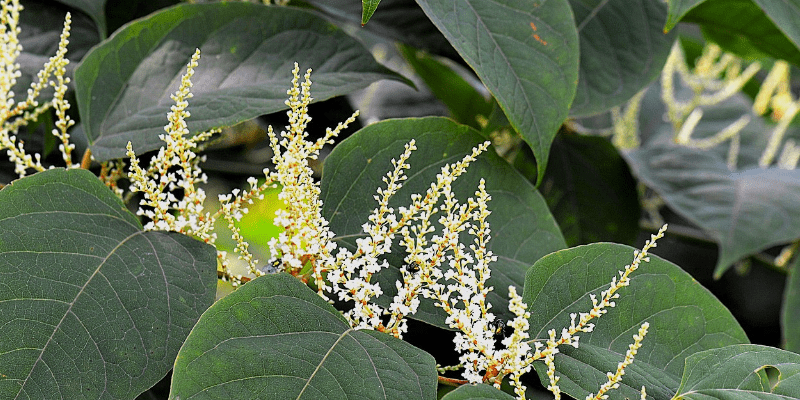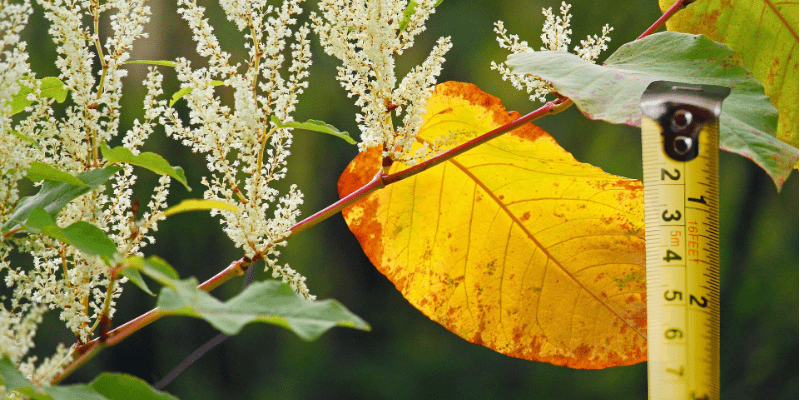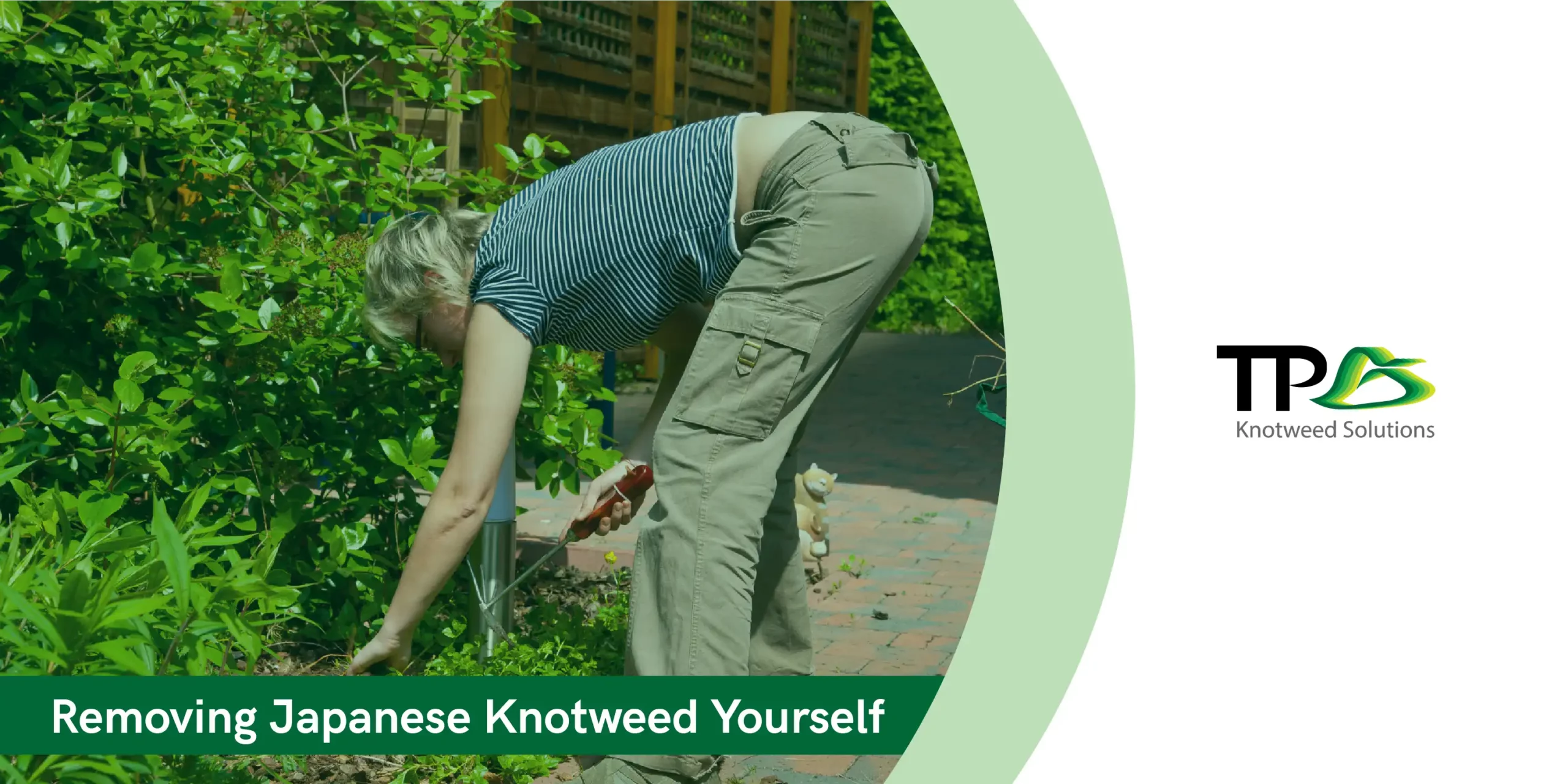Japanese knotweed is an invasive plant that was first brought to England in the 1850s. 170 years later, it still creates problems for UK homeowners. It is particularly a threat to properties, as the plant’s uncontrollable growth and hardy nature allow it to thrive anywhere from cracks in concrete to bricks and pipes, causing immense structural damage to homes.
As such, strict laws are in place to prevent the spread of this harmful species, meaning homeowners need to be aware of its presence or absence when planning to sell their property.
If you’re looking to sell and suspect your property may have Japanese knotweed present, the burning question on your mind right now may be, “Is it illegal to sell a house with Japanese knotweed?”. Here are all the answers you need to remain compliant and avoid facing misrepresentation claims.
How much of a problem is Japanese knotweed?

The mere presence of Japanese knotweed on or near your property can make your home difficult to sell, not only due to the risk of structural damage occurring but as a result of how difficult the invasive species can be to remove entirely. If Japanese knotweed is present, it can reduce the value of even the most desirable of properties by up to 20%.
The short answer to the burning question is, “yes”, you can sell a house with Japanese knotweed. It may, however, take a long time to sell and the valuation tends to be lower, which decreases your chance of a successful sale. You would, however, be far better off dealing with the problem before selling, than avoiding doing so and selling your property as is.
Specialist companies offer services for the removal, treatment and maintenance of Japanese knotweed – usually accompanied by insurance-backed guarantees highly favoured by mortgage lenders.
Here are the fundamentals of why Japanese knotweed affects you as a home seller:
- – Japanese knotweed is an invasive plant species.
- – They are aggressive weeds with a particularly hardy nature.
- – Their roots grow quickly and are strong enough to grow through brick.
- – They can cause extensive structural problems to building foundations.
- – Mortgage lenders often do not consider properties with Japanese knotweed unless a treatment plan is in place.
Do sellers have to disclose Japanese knotweed?

It is mandatory to legally declare if your property is affected by Japanese knotweed before you agree on a sale. If a property is known to have Japanese knotweed present, this should be disclosed to the real estate agent at an early stage. Otherwise, you may waste the potential buyer’s time, as there is a chance they will become reluctant or unable to proceed with the sale once aware of the issue at hand.
The Law Society TA6 Property Information Form was updated in February 2020 to place more pressure on sellers to declare whether or not their property is suffering from Japanese knotweed. If it’s not known, sellers should take necessary steps to seek a definitive answer, such as consulting a specialist knotweed surveyor to conduct a survey on the property.
The failure to declare Japanese knotweed is currently resulting in an immense number of misrepresentation claims against sellers. Following a court case regarding TA6 and Japanese knotweed in January 2020, the Law Society amended the guidance notes relating to Japanese knotweed in February 2020. Before these amendments, the notes stated:
“The seller should state whether the property is suffering from Japanese knotweed.”
However, on 7 February 2020, these notes were updated extensively to incorporate a more detailed explanation:
“It should be stated by the seller whether the property contains Japanese knotweed. If you’re unsure that Japanese knotweed exists above or below ground or whether it’s previously been managed on the property, please indicate this as ‘Not known’. If No is chosen as a solution the vendor must make certain that no rhizome (root) is present within the ground of the property, or within 3 metres of the property boundary whether or not there aren’t any visible signs above ground.”
Japanese knotweed distance from house required

Guidance continues to focus on neighbouring domestic Japanese knotweed, as the proximity of knotweed to a property can affect the future value of the property if there are no signs of an effective treatment in place by the adjacent landowners.
Based on the latest research, 3m is accepted as the optimal distance away from the property borders. If the mortgage appraiser discovers Japanese knotweed more than 3m from the property line, they do not need to report this to the lender, but it would still be advisable to make a brief mention of the findings. Japanese knotweed any closer than this will need to be reported by a mortgage appraiser to a lender.
Find peace of mind with a professional site survey
If you know or have reason to believe that knotweed is growing on or near your property, the advice in this article can mean the difference between a successful sale and a significant loss in home value.
Request a Japanese knotweed survey from our specialist knotweed surveyors to find definite answers on the presence or absence of knotweed on your property.




